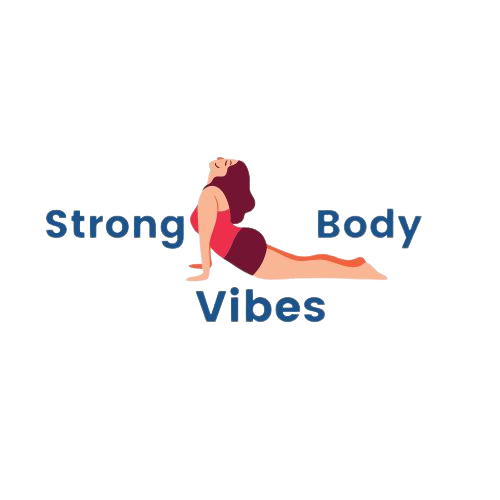Are you ready to step outside of your comfort zone and unlock your full potential? Friedrich Nietzsche and Tony Robbins believe that comfort and growth are incompatible. To experience personal development and reach new heights, you must embrace discomfort and uncertainty. The Yerkes-Dodson Law explains how a certain amount of stress can actually improve performance, but too much can be counterproductive. While it may be tempting to stay within our comfort zones, this desire for competence and control can hinder our growth. However, stepping outside of our comfort zones can lead to increased self-integrity, self-efficacy, a growth mindset, and reduced regret. It doesn’t have to involve major upheavals either; small acts can also expand our comfort zones. By developing self-awareness and gradually taking on challenges that genuinely interest us, we can break through the barrier of our comfort zones and unleash our true potential.
The Incompatibility of Comfort and Growth
Comfort and growth according to Friedrich Nietzsche and Tony Robbins
Comfort and growth may seem like opposing forces, but according to both Friedrich Nietzsche and Tony Robbins, they are fundamentally incompatible. In their philosophies, both Nietzsche and Robbins highlight the need to step outside of our comfort zones in order to experience growth and reach our full potential.
The Importance of Stepping Outside Your Comfort Zone
Necessity for growth and reaching full potential
Stepping outside of our comfort zones is essential for personal growth and to fulfill our potential. Remaining in our comfort zones keeps us stagnant and prevents us from experiencing new opportunities and challenges. By pushing ourselves beyond our comfort boundaries, we are able to expand our skills, gain new perspectives, and discover untapped potential within ourselves.
Embracing discomfort and uncertainty for personal development
Embracing discomfort and uncertainty is a crucial aspect of personal development. It is natural to feel uneasy when venturing into unfamiliar territory, but it is through these moments that we can learn and grow the most. By willingly subjecting ourselves to discomfort, we can overcome fears and develop resilience, ultimately leading to personal growth and a sense of achievement.
The Yerkes-Dodson Law and the Role of Stress
How a certain amount of stress improves performance
The Yerkes-Dodson Law proposes that there is an optimal level of stress for peak performance. A moderate amount of stress can increase our motivation, focus, and productivity. When we step out of our comfort zones, we introduce a healthy level of stress that stimulates our minds and bodies, leading to improved performance and growth.
Negative effects of excessive stress and stimulation
While a certain amount of stress can be beneficial, excessive stress can have detrimental effects on our mental and physical well-being. Overwhelming stress can lead to burnout, anxiety, and even physical health issues. It is important to strike a balance and be aware of our limits when stepping outside of our comfort zones to ensure we don’t push ourselves beyond what is healthy.
Desire for Competence and Control
Preference to stay within comfort zones
The desire for competence and control often leads us to prefer staying within our comfort zones. We feel more confident and capable when we are familiar with our surroundings and abilities. However, this preference can hinder personal growth and prevent us from exploring new opportunities and expanding our comfort zones.
Impact of competence and control on comfort zones
When we have a sense of competence and control, we feel safe and secure in our comfort zones. We may fear failure or judgment when venturing outside of these familiar spaces. However, it is important to recognize that true growth comes from pushing past these fears and embracing the unknown. By gradually challenging ourselves and building our competence in new areas, we can expand our comfort zones and continue to grow.
Benefits of Stepping Outside Your Comfort Zone
Increased self-integrity
Stepping outside of our comfort zones can lead to an increased sense of self-integrity. When we challenge ourselves and overcome obstacles, we prove to ourselves that we have the ability to accomplish difficult tasks. This builds confidence and strengthens our belief in our own capabilities.
Improved self-efficacy
Self-efficacy, or our belief in our abilities to achieve goals, can be enhanced by stepping outside of our comfort zones. By taking on new challenges and successfully navigating through them, we develop a stronger belief in our capacity to handle difficult situations. This newfound confidence translates into increased self-efficacy in various areas of our lives.
Developing a growth mindset
One of the most significant benefits of stepping outside of our comfort zones is the development of a growth mindset. A growth mindset is the belief that our abilities and intelligence can be cultivated and improved through effort and experience. By challenging ourselves and embracing discomfort, we shift our perspective from a fixed mindset to a growth mindset, allowing us to continue learning and growing throughout our lives.
Reduced regret
Often, our comfort zones are associated with missed opportunities and regrets. Stepping outside of our comfort zones reduces the chances of regret by enabling us to seize new experiences and possibilities. When we challenge ourselves and take risks, we are more likely to look back on our lives with a sense of fulfillment and satisfaction, knowing that we made the most of the opportunities presented to us.
Enhanced resilience
Stepping outside of our comfort zones builds resilience. When we face and overcome challenges, we become better equipped to handle adversity in the future. Our ability to bounce back from setbacks and adapt to new situations is strengthened through the discomfort and uncertainty we experience when we push beyond our comfort zones.
Self-actualization
Stepping outside of our comfort zones ultimately leads to self-actualization, a state in which we fulfill our highest potential. It is through pushing ourselves to take risks and embrace new opportunities that we discover our true capabilities and passions. By continuously expanding our comfort zones, we become the best version of ourselves and live a truly fulfilling life.
Small Acts to Get Out of Your Comfort Zone
No major changes required
Getting out of our comfort zones does not necessarily require making major life changes. It can start with small, manageable acts that push us slightly beyond our usual boundaries. Taking a different route to work, trying a new hobby, or engaging in a conversation with someone outside of our usual social circle are all simple ways to step outside of our comfort zones and begin the journey of personal growth.
Achievement through small acts
It is important to recognize that even small acts outside of our comfort zones have the potential to yield significant growth and personal development. Each small step taken builds confidence and prepares us for more substantial challenges in the future. By consistently pushing ourselves to explore new territory, we gradually expand our comfort zones and open ourselves up to a world of possibilities.
The Importance of Self-Awareness and Reflection
Developing self-awareness
Self-awareness is a crucial aspect of stepping outside of our comfort zones. By understanding our fears, motivations, and limitations, we can make more informed decisions about when and how to push ourselves beyond our comfort boundaries. Developing self-awareness involves introspection, self-reflection, and a willingness to confront our own biases and prejudices.
Benefits of reflection
Reflection is a powerful tool for personal growth and expanding our comfort zones. Taking the time to reflect on our experiences, both within and outside of our comfort zones, allows us to gain insights and learn from our successes and failures. By reflecting on the lessons learned, we can better navigate future challenges and continue on the path of growth and self-discovery.
Gradually Taking on Genuine Challenges
Expanding comfort zones through gradual challenges
Gradually taking on genuine challenges is an effective way to expand our comfort zones. By identifying areas that genuinely interest and excite us, we can push ourselves to step outside of our comfort boundaries in a way that feels authentic and meaningful. This gradual approach allows us to build competence and confidence, ensuring that each new challenge is within reach and propelling us further towards personal growth and self-fulfillment.
In conclusion, the incompatibility of comfort and growth is a concept that Friedrich Nietzsche and Tony Robbins both emphasize. Stepping outside of our comfort zones is essential for personal growth and reaching our full potential. By embracing discomfort and uncertainty, understanding the role of stress, and gradually taking on challenges, we can experience the numerous benefits of expanding our comfort zones. Through increased self-integrity, improved self-efficacy, development of a growth mindset, reduced regret, enhanced resilience, and ultimately self-actualization, we can transform our lives and become the best versions of ourselves. So, start small, be self-aware, reflect on your experiences, and gradually challenge yourself to step outside of your comfort zone. The possibilities for growth and personal fulfillment are endless.

